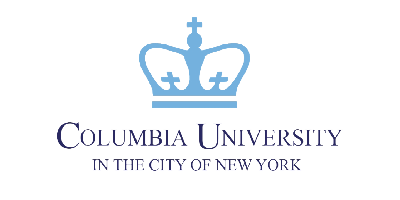Assistant Professor in Computational Ecology and/or Evolutionary Biology (tenure-track)
 Columbia University Columbia University | |
 United States, New York, New York | |
 535 West 116th Street (Show on map) | |
 Feb 21, 2026 Feb 21, 2026 | |
|
The Department of Ecology, Evolution, and Environmental Biology (E3B) at Columbia University invites applications for a tenure-track position at the Assistant Professor level. The position is expected to begin July 1, 2026 and is contingent on final confirmation of funding. The past decade has seen exponential growth in the availability of ecological, evolutionary, and environmental data. Simultaneously, powerful computational and statistical tools have emerged to analyze these vast datasets. These developments are revolutionizing our ability to ask and answer fundamental questions in ecology and evolution. We seek a new faculty member whose research harnesses these datasets and methods to address core questions in ecology and/or evolution. This individual will contribute to teaching and mentoring across undergraduate and graduate levels, train students in computational methods, and conduct research that can deepen our understanding of different areas, including the evolutionary and ecological processes that shape the living world in the past, present, and future, design and evaluate nature-based solutions to prevent environmental degradation, and inform and manage impacts on human health and wellbeing. Applicants can use any combination of modern computational approaches - across data science, probability theory, machine learning, or other relevant fields- to study fundamental questions in ecology and/or evolutionary biology or apply these approaches to societally relevant challenges. Preference will be given to those who explore links between ecology and evolutionary biology. The successful candidate is expected to establish a vigorous, externally funded research program that complements and augments existing strengths within E3B, and to participate in undergraduate and graduate teaching. E3B is an intellectually diverse and stimulating department consisting of a vibrant and close-knit community. It has strong links to other departments and disciplines at the University, including neuroscience (Zuckerman Mind Brain Behavior Institute), earth and environmental science (Department of Earth and Environmental Science, Lamont-Doherty Earth Observatory, and the Climate School), and disease epidemiology (Mailman School of Public Health). E3B also has close ties with New York partner institutions, including the New York Genome Center, the American Museum of Natural History, the New York Botanical Garden, and the Wildlife Conservation Society. These connections provide ample opportunities for interaction and collaboration. Review of applications will begin October 1, 2025, and will continue until the position is filled. Please submit applications online in Interfolio. Include a cover letter, curriculum vitae, a statement of research interests that describes not only significant accomplishments but also a vision for the future of the field and your role in it, a teaching and mentoring statement, three PDFs of publications or preprints, and contact information for three reference letter writers. Minimum Degree Required: Ph.D. Minimum Qualifications: Strong research and publication record. Preferred Qualifications: Training and experience in computational ecology and/or evolutionary biology. Columbia University is an Equal Opportunity Employer / Disability / Veteran Pay Transparency Disclosure The salary of the finalist selected for this role will be set based on a variety of factors, including but not limited to departmental budgets, qualifications, experience, education, licenses, specialty, and training. The above hiring range represents the University's good faith and reasonable estimate of the range of possible compensation at the time of posting. | |

